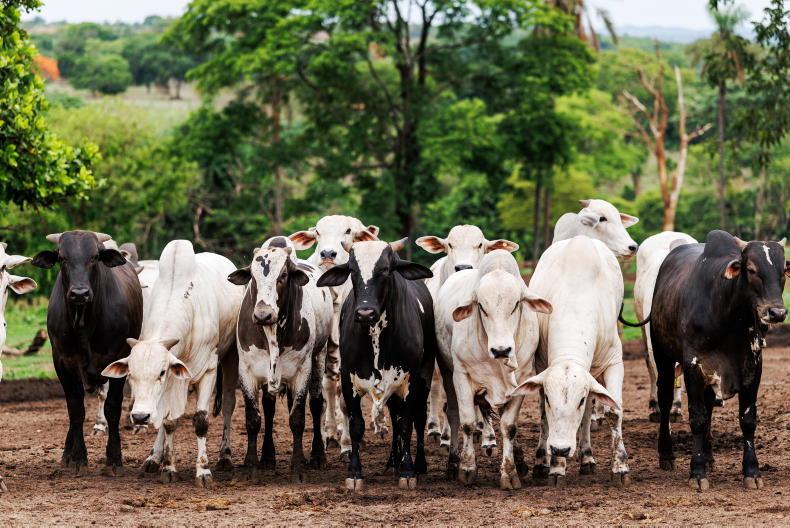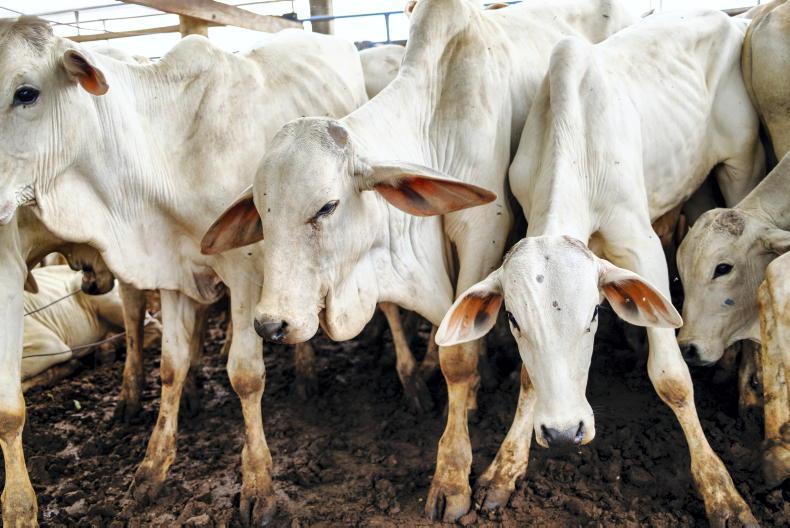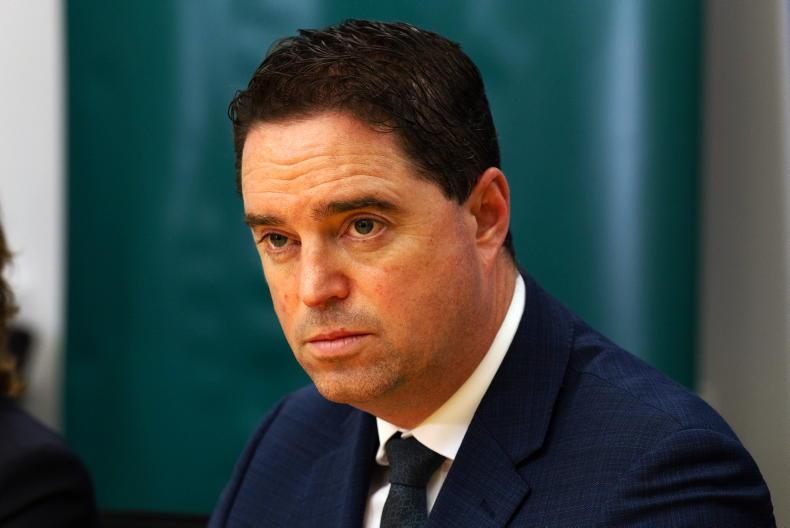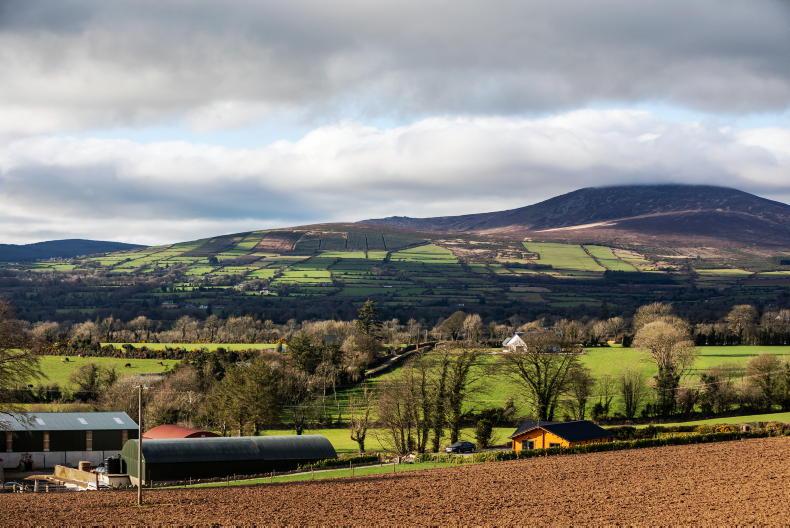The strategy that will shape EU agriculture for the next CAP period is now due to be published on 20 May, having been postponed since March because of COVID-19.
It is led by the Health Commissioner Stella Kyriakides, not the Agriculture Commissioner as might be expected with a subject so intrinsically linked with farming.
Green deal
This will be the agriculture plank in the green deal, the theme of this Commission under President Ursula von der Leyen and climate and environment will be at the core of the strategy. However, this cannot be at the expense of productive agriculture.
The panic buying in supermarkets at the start of the COVID-19 crisis demonstrated just how important meat and dairy products are to consumers.
It is a tribute to farmers, processors and distributors just how quickly shelves were replenished as people had to switch to consuming all food in the hope without the dining-out option.
It would be good, but unlikely, if the EU could revise its thinking on GHG emissions from agriculture. As Colm Mc McCarthy explained in this week’s Irish Farmers Journal, allocation of a national target for agriculture simply doesn’t make sense.
Livestock farming is most suited to countries with a temperate climate with natural grassland and an abundant supply of water.
Labelling
An area that the EU needs to tread with caution is around food labelling. Polish farmers have been protesting about dairy imports, the leader of the National Farmers Union in the UK has been complaining about Irish beef and no French supermarkets are offering imported beef since farmer protests a few years ago.
Country-of-origin labelling facilitates this and whatever its merits from the point of product integrity, it is also a barrier to trade, especially for exporting countries.
COVID-19
COVID-19 has had a dramatic effect on the entire economy, but farmers have been seriously overlooked when it comes to provision of financial support, especially when compared with their counterparts in the USA.
A big part of the problem is that the EU isn’t particularly well resourced, given that it receives just 1% of national budgets. This, in turn, has led to the outsourcing of support measures to individual member states through serious relaxation of state aid rules.
This may have been a necessary short-term response, but if it continues for a prolonged period, it seriously undermines the entire single market principle.
It also greatly favours the more wealthy countries who have the financial firepower to support their industry and farmers.
Carbon
It is also encouraging that the EU is planning to make carbon an issue for trade deals and compliance with the Paris accord being the standard.
This is already in the Mercosur deal announced last June, including a commitment that Brazil would replant 1m hectares of rain forest per year for the next decade.
Of course, the opposite has happened over the past year and it will be interesting to see just how serious the EU is about this when it comes to ratification of the deal.
Read more
No more delays to Europe’s Farm to Fork strategy
Colm McCarthy: common sense needed
The strategy that will shape EU agriculture for the next CAP period is now due to be published on 20 May, having been postponed since March because of COVID-19.
It is led by the Health Commissioner Stella Kyriakides, not the Agriculture Commissioner as might be expected with a subject so intrinsically linked with farming.
Green deal
This will be the agriculture plank in the green deal, the theme of this Commission under President Ursula von der Leyen and climate and environment will be at the core of the strategy. However, this cannot be at the expense of productive agriculture.
The panic buying in supermarkets at the start of the COVID-19 crisis demonstrated just how important meat and dairy products are to consumers.
It is a tribute to farmers, processors and distributors just how quickly shelves were replenished as people had to switch to consuming all food in the hope without the dining-out option.
It would be good, but unlikely, if the EU could revise its thinking on GHG emissions from agriculture. As Colm Mc McCarthy explained in this week’s Irish Farmers Journal, allocation of a national target for agriculture simply doesn’t make sense.
Livestock farming is most suited to countries with a temperate climate with natural grassland and an abundant supply of water.
Labelling
An area that the EU needs to tread with caution is around food labelling. Polish farmers have been protesting about dairy imports, the leader of the National Farmers Union in the UK has been complaining about Irish beef and no French supermarkets are offering imported beef since farmer protests a few years ago.
Country-of-origin labelling facilitates this and whatever its merits from the point of product integrity, it is also a barrier to trade, especially for exporting countries.
COVID-19
COVID-19 has had a dramatic effect on the entire economy, but farmers have been seriously overlooked when it comes to provision of financial support, especially when compared with their counterparts in the USA.
A big part of the problem is that the EU isn’t particularly well resourced, given that it receives just 1% of national budgets. This, in turn, has led to the outsourcing of support measures to individual member states through serious relaxation of state aid rules.
This may have been a necessary short-term response, but if it continues for a prolonged period, it seriously undermines the entire single market principle.
It also greatly favours the more wealthy countries who have the financial firepower to support their industry and farmers.
Carbon
It is also encouraging that the EU is planning to make carbon an issue for trade deals and compliance with the Paris accord being the standard.
This is already in the Mercosur deal announced last June, including a commitment that Brazil would replant 1m hectares of rain forest per year for the next decade.
Of course, the opposite has happened over the past year and it will be interesting to see just how serious the EU is about this when it comes to ratification of the deal.
Read more
No more delays to Europe’s Farm to Fork strategy
Colm McCarthy: common sense needed









SHARING OPTIONS